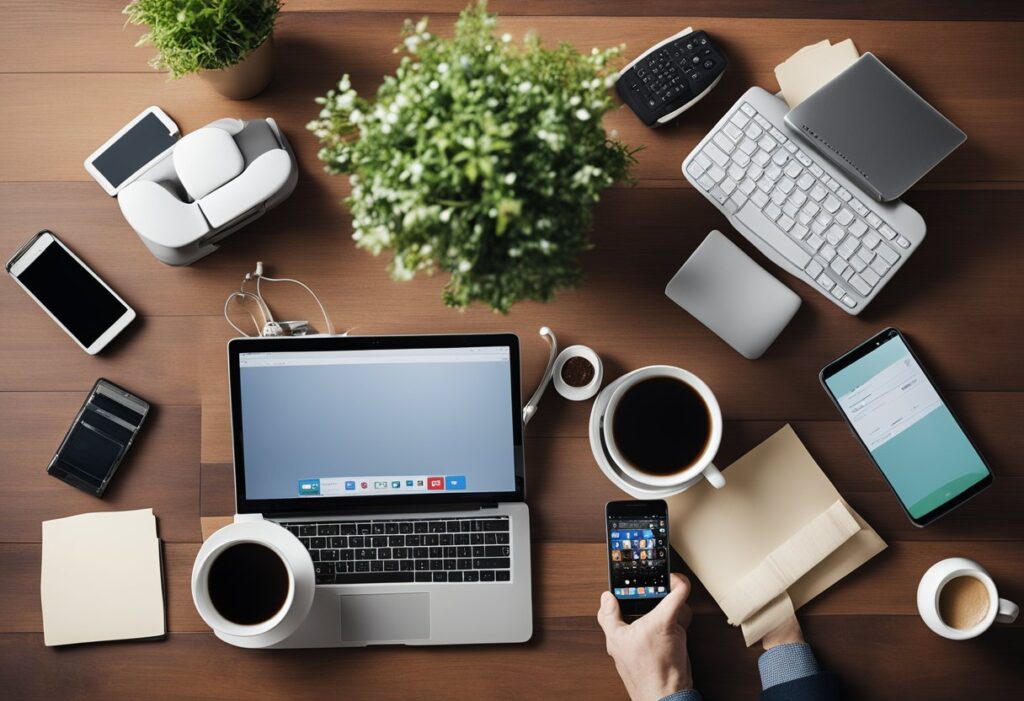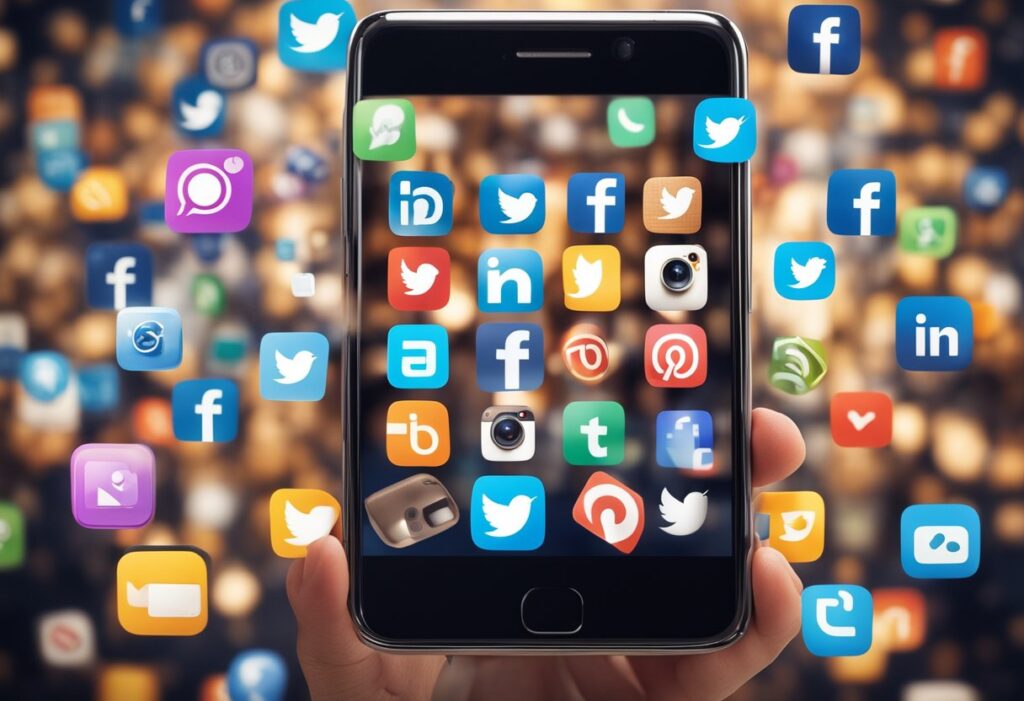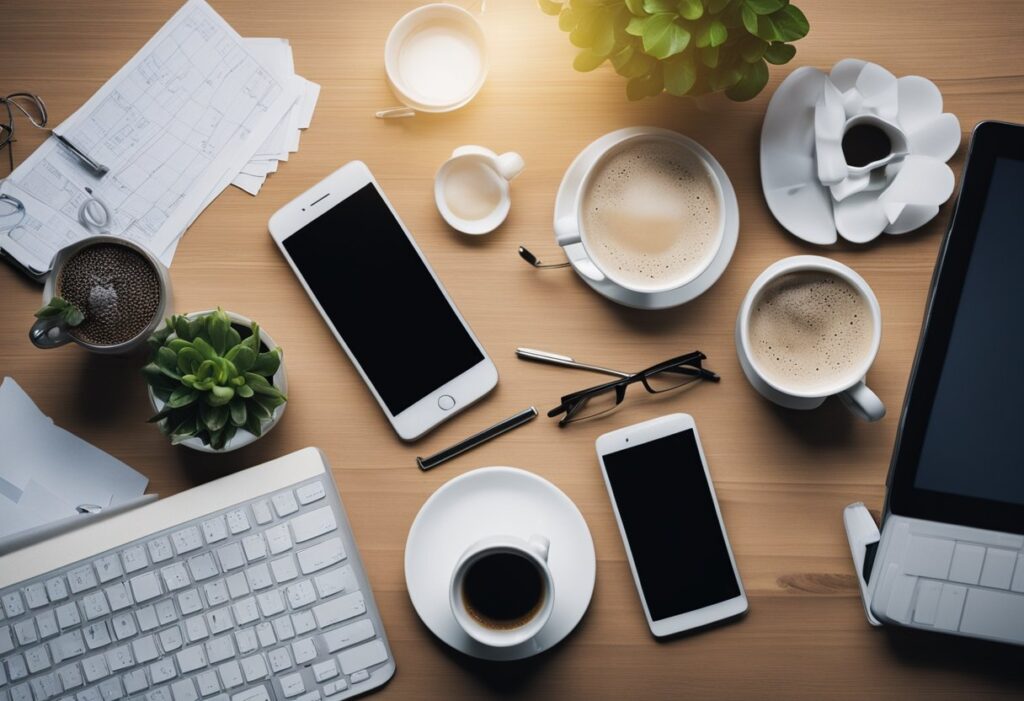Social media is now a big part of life today, with many people using it to talk and share their stories. They also use social media to know what’s happening around the world right away. Social media sites have no doubt got us more connected, but they also greatly changed how we see the world. In recent years, many people have worried about the “boring life” that social media apps can cause.

The idea of “simplicity in life” says that social media can make the world less fun and interesting than it is. People usually just post the most ordinary parts of their lives on social media, like what they ate for breakfast or showed on TV. This causes social media to give a wrong look at real life, making everything seem not exciting and ordinary.
Social media can help you stay in touch with friends and family, but it’s important to know about the possible bad things that could happen. By seeing how simple life can be from social media, we can do things to make sure we don’t miss the amazing and different parts of our world. We can make our lives interesting and full by trying new things, exploring different places, or sometimes stepping away from social media. There are many ways to keep alive the fun in life.
The Rise of Social Media

Social media is now an important part of how we talk in today’s world. It changed how people talk and share information. Social media sites have become popular fast, making a big impact on society. In this part, we’ll look at the past and growth of social media sites.
Historical Context
We can trace the history of social media back to when the internet was new. In the 1990s, many people on the internet liked to use message boards and chat rooms. These sites let people talk and connect with others on the internet. But, it didn’t happen until the early 2000s that social media sites like today started to appear.
Evolution of Social Media Platforms
The first social media platform was Six Degrees, which started in 1997. It lets people make profiles and meet up with friends. But, it didn’t do so well and closed in 2001. The next big social media site was Friendster. It started in 2002. It quickly became famous and had many users in millions just a few years later.
In 2004, Facebook started, and it became one of the world’s most used social media sites. Twitter started in 2006 and Instagram began in 2010. These sites let people swap info and meet each other in fresh, cool ways.
But, the increase in social media also brings worries about its effect on society. One big worry is that social media can make life boring. Many times, people spend a lot of time scrolling their feeds and taking in stuff that doesn’t have much worth. This can cause a feeling of emptiness and unhappiness in life.
In the end, social media has been really important for society. It has changed how people talk and share facts. But, we should know that social media can sometimes cause bad things like making our life seem boring.
Psychological Impact of Social Media

Many people now include social media as an important part of their everyday routine. Using it can be good, but there are also bad effects on your mind. This section will explore two of these impacts: Understanding ourselves and comparing with others.
Perception of Self
One big way social media affects people’s minds is by changing how they see themselves. People often show a perfect side of themselves on social media sites. This can make them feel bad and worthless.
Also, all the pictures and messages on social media can give a wrong view of real life. People might look at how good others seem to have it, which can make them feel unhappy and let down.
Social Comparison
Social media also affects our minds by making us compare ourselves to others. People often compare themselves with others on social media. This can make them feel envious. This might hurt our minds because it could cause sadness and worry.
In addition, social media can cause a spirit of competition. Users are always trying to show the best and most successful version of themselves on these platforms. This can make people want approval from others more than focusing on growing within themselves.
So, the effect of social media on our minds: like how we see ourselves and judge others, is bad for our mental health. It’s key to use social media carefully and take breaks if needed. This helps us avoid the bad effects it can have.
Social Media App and Daily Life
Routine and Repetition
For many people, using social media is a big part of their everyday life. It has changed how people talk to each other, use stuff, and spend their spare time. Social media sites are made to be hard to stop using and keep people busy for a long time. Many people waste time looking at their phones, checking messages, and updating social media multiple times a day.
This regular and same thing can greatly change how people live. This could cause low work output, less focus, and a feeling of being away from the real world. People might also feel bad about themselves when they see others living better on social media. They start to think less of themselves and their lives.
Content Consumption Patterns
Social media has also altered how people take in information. With a lot of data around, people now get used to eating small bits of information fast. This has caused people to pay less attention and want quick satisfaction.
So, social media websites are now full of boring stuff. People tend to connect with things they can easily understand, instead of stuff that makes them think hard or is difficult. This has resulted in a big growth of memes, viral videos, and articles that get clicks but don’t provide much worth.
In the end, social media is now a common part of life for many people every day. Even though it brings lots of good things like staying in touch with friends and family, there are also some bad parts. Using social media often can make you less productive and feel disconnected from real life. Also, what people watch or read on social media can influence their decisions.
Addressing the Banality
In the last few years, apps for social media have become an everyday thing in most people’s lives. They have many good things, but they can make everyday life feel plain. But, there are methods to handle this problem and make deeper connections on these platforms.
Creating Meaningful Interactions
To fight dullness on social media, try making more meaningful talks. This can be done by making users talk with each other in a more real and meaningful way. For example, rather than just liking a post people could write comments that join the chat or show what they think.
Social media apps could add features that encourage deeper talks, like group chats or areas for discussions about certain subjects. These things might make people connect with others who think the same way and have deeper talks.
Promoting Authentic Content
A way to fight dullness on social media is by pushing for real content. This means we should get people to put up real stuff about themselves and what they like instead of just making things for likes or attention.
Social media apps could add features to show real content, like a section for recommended posts that highlights posts from people who often share true and interesting stuff. This can motivate people to concentrate on making content that matters to them, instead of just seeking fame or attention.
In the end, social media apps can make everyday life dull. But there are ways to deal with this issue and have better talks on these sites. If social media apps pay more attention to real conversations and encourage honest material, they can be a better part of people’s lives.

3 thoughts on “Social Media App Banality of Life: How Social Media Apps are Making Life Mundane”
Pingback: Ed Sheeran Details the Lovestruck Jitters in Sweet New Single
Pingback: Disposable Camera NZ: Where to Buy and How to Use Them - Knowa Tech
Pingback: Qxefv Unraveled: Demystifying the Technology Shaping Tomorrow